UNDERGRADUATE RESEARCH BLOGS
The Office of Undergraduate Research sponsors a number of grant programs, including the Circumnavigator Club Foundation’s Around-the-World Study Grant and the Undergraduate Research Grant. Some of the students on these grants end up traveling and having a variety of amazing experiences. We wanted to give some of them the opportunity to share these experiences with the broader public. It is our hope that this opportunity to blog will deepen the experiences for these students by giving them a forum for reflection; we also hope these blogs can help open the eyes of others to those reflections/experiences as well. Through these blogs, perhaps we all can enjoy the ride as much as they will.
EXPLORE THE BLOGS
- Linguistic Sketchbook
- Birth Control Bans to Contraceptive Care
- A Global Song: Chris LaMountain’s Circumnavigator’s Blog
- Alex Robins’ 2006 Circumnavigator’s Blog
- American Sexual Assault in a Global Context
- Beyond Pro-GMO and Anti-GMO
- Chris Ahern’s 2007 Circumnavigator’s Blog
- Digital Citizen
- From Local Farms to Urban Tables
- Harris Sockel’s Circumnavigator’s Blog 2008
- Kimani Isaac: Adventures Abroad and At Home
- Sarah Rose Graber’s 2004 Circumnavigator’s Blog
- The El Sistema Expedition
- The World is a Book: A Page in Rwand
Krishna
Krishna Sharma
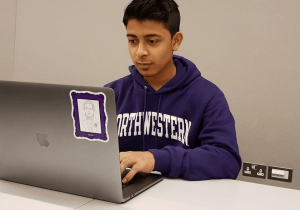
Please provide a brief summary of your research.
I worked on a couple of projects. In one of those, I tried to gauge the role of individual differences in compulsive use of social media platforms such as YouTube. Another was an examination of ephemeral sharing on Facebook and Instagram.
What made you initially interested in researching your project in particular?
When I was working with Dr. Justin Martin on one of his projects on the intrinsic need for orientation, I stumbled upon articles that looked at associations between individuals’ behaviors and their personality traits. Then I read more on such individual differences and started to think about how such differences along with use motivations might affect people’s social media use. On Quora and on Reddit, I had also seen people ask questions about how to fix their “social media addiction,” and that also got me quite interested in the topic that I chose.
What made you interested in pursuing (interdisciplinary) research more broadly?
During my sophomore year, I took a statistics course with Dr. Justin Martin. That course was my first glimpse into a scientific examination of questions in mass media, social media, and psychology. Then when I started reading on media psychology, I started coming up with my own questions. Some of those had already been answered by others, and I just had to look them up on an academic database such as Google Scholar. Some were not. Among those that were not, a few could be answered with the methods I learned in that statistics class. Outside of the class, I have worked as a research assistant for Prof. Justin Martin as well as Prof. George Anghelcev. Both are amazing scholars, and have always encouraged me to follow my curiosity in research. I am very grateful to Dr. Martin and Dr. Anghelcev, as well as Dr. Ilhem Allagui who helped me with one of my projects.
Describe your experiences with research thus far. Was it tricky? What skills do you think you’ve gained?
Before I received this grant, I had mostly only worked for professors (Dr. Justin Martin, Dr. Torsten Menge, and Dr. George Anghelcev) as a research assistant. When you work on projects supervised by your professors, it is methodical in some ways, and they assign you particular things to learn and tasks to complete. I have learnt a lot this way, and I am quite grateful for the experience. But at the same time, I also wanted to grow and do some independent work where I could be my own supervisor. SURG allowed me to do that. I worked on a project with two other student co-authors and after completion, we applied for presentation at the International Communication Association(ICA)’s 72nd conference. Our full paper got accepted and we will be presenting at ICA’s conference in May this year.
During this time, I think I have mostly learned to do independent work, and over the last three years, I have learned that as much as it is about thinking through things, research is mostly reading and writing and re-writing. Being orderly and industrious really helps. In terms of skills, I have learned to do many different types of quantitative analyses necessary for research work in the social sciences.
Any tips or advice you have for students similar to you that are interested in pursuing undergraduate research?
Everybody finds it overwhelming at the beginning. So if you are having those intimidating feelings, please understand that it’s completely natural. Also, this might not be exclusively a research-related advice, but if you struggle with procrastination at times, getting a study partner or a work partner might help. I had a friend with whom I had regular Zoom study sessions, in which both of us would be working on our own research projects. That immensely helped me with my productivity throughout the summer.
Do you have a podcast/documentary/piece of shareable media related to your research?
I am going to present a paper with a couple of other student co-authors at the ICA meeting this year. Here is a link to my paper. If you want to read but the full text is not available for you, just press the button “Request the full text from the author” and I’ll be happy to send it to you.
If you had unlimited time, money, resources, support, etc. what is something you would research?
Two things come to mind: 1. Reducing the spread of fake news, and 2. different forms of problematic use of social media.
Favorite breakfast food?
Milk and cereal.
What’s the most interesting thing you’ve learned/read about/listened to this week?
People become less aggressive if you remove their amygdala. Don’t try it; there are other consequences too.
Anika
Anika Velasco
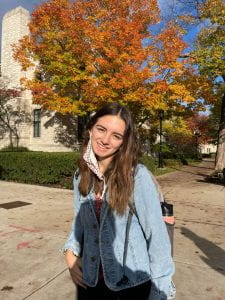
Please briefly summarize your research.
Since this past summer, I have been working at the Child Language Lab run by Dr. Adriana Weisleder. The lab focuses on researching the language development of bilingual children and children with language impairments. As someone who is interested in both developmental psychology and languages, my experience in the lab has been very engaging! I have primarily worked on the Daylong Dual-Input LENA Recordings Annotations with PhD student, Anele Villanueva. The project consists in analyzing daylong audio recordings of the environments of infants from bilingual Latinx households. In order to annotate daylong audio recordings, I annotate 30-second clips from the longer recordings selected by random sampling. The annotation categories I am primarily focused on is the speech register, so who is the speaker directing their speech towards. Within that, I also annotate for the speaker type (adult or child) and the language (English, Spanish, or Mixed). The purpose of this project is to increase the knowledge of the language context of dual language learners (Spanish-English) from immigrant Latinx families. This is an area of study that has not been deeply researched and will provide information on how to best support bilingual children during their language development. I am also currently starting to plan my independent summer research project, which will consist in analyzing the messages about Hispanic culture that picture books communicate to Hispanic children in the Chicago area.
What made you interested in pursuing (interdisciplinary) research more broadly?
I did not expect to pursue research during my time at Northwestern, but it only makes sense that I have pursued research that has an interdisciplinary lens. The value of interdisciplinary research stems from the fact that it considers multiple viewpoints and so, I think it is becomes more applicable to the real-world outside of the lab environment. More specifically for me, I have a variety of interests and interdisciplinary research allows me to delve into many interests through one activity. My time at the lab has allowed me to interact with a variety of fields (Psychology, Communication Sciences Disorders, Linguistics, Spanish, Cultural Anthropology), which has been much more interesting for me and has deepened the quality of the research I have participated in.
How has it been working with faculty to transition from an assistant position to a more independent role?
I am currently in that transition from an assistant position to a more independent role so I cannot fully speak on the experience. Nevertheless, so far, it has been going well. The team at the Lab are very supportive and are helping me through the transition. I do not have research experience prior to my time at the Lab and I know I would not have pursued an independent research project if it were not for the workshops, faculty members, and research experience provided by Emerging Scholars Program. Learning the basics of research as a research assistant during the summer and Fall Quarter has given me the foundation to now confidently plan my own research project. In addition, my faculty member and the team at the Lab has been extremely helpful in supporting me both throughout transitioning and planning my research project.
What’s been your favorite part about being in a cohort with other scholars?
It is really nice to be in a cohort where we are all going through the same experiences for the first time together. We were all going through similar stages of starting research during the summer and we are now similar stages planning our research projects. While it is difficult to begin brainstorming an independent research project, more recently, my cohort has been supportive in helping me brainstorm project ideas.
Do you have any tips or advice for first years similar to you who are interested (but maybe hesitant) to apply for a 15 month long program?
My major advice is if the program just sounds interesting (even if you are hesitant about it), just apply. I was initially wary about applying to the Emerging Scholars Program because it seemed like a long commitment. While 15 months is a good amount of time, I have had such wonderful and engaging experience while doing research. It has been an excellent way to dip my toes into the water of research without diving in head first into pursuing research. I am currently not planning to do research as a career choice, but nonetheless, my research experience has been very interesting and definitely worthwhile. More specifically, I would suggest that if you are intrigued or excited by one of the listed faculty members or their projects, that is a definite sign that you should apply.
Favorite breakfast food?
Pan con palta (bread with avocado). I could eat it every day for the rest of my life. Is this the same things as avocado toast? Some might say maybe so (they both ARE made up of bread… and avocado), but I would beg to differ. This Peruvian dish is delicious and heartwarming and existed way before trendy restaurants decided to offer it up as an $18 brunch option.
What is your most useless talent?
My useless talent is being able to whistle the entirety of Le Vie en Rose. I am sad that I haven’t yet found a proper use for my whistling but I have found it quite handy for when I am bored out of my mind or when there is a need to annoy someone.
Olivia P.
Olivia Pierce
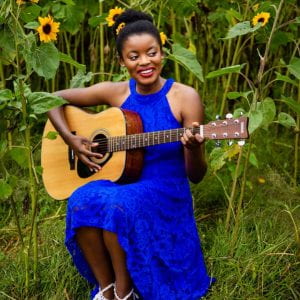
Please briefly summarize your research.
I am conducting archival research with Dr. Joshua Chambers-Letson in the Performance Studies Department. Our work includes looking at the correspondence of queer of color artists in order to articulate how they incorporate themes of love and loss into their works and creative processes. Additionally, we conducted archival research on the avant-garde performance movement that took place in New York in the 1970s to learn more about how Asian and Asian-American artists such as Yoko Ono, Shigeko Kubota, and Nam June Paik, express their identities and experiences through music, technology, and performance. Our research culminated with a trip to New York, where we talked to artists about their present-day processes and studied in the archives.
What made you interested in pursuing (interdisciplinary) research more broadly?
I was interested in pursuing research specifically related to artists and their identities because as a recording artist, I strive to incorporate themes surrounding my own identity into my music. I thought it would be immensely beneficial for me to learn more about the legacy of artists who have approached their creative processes in a similar way throughout history.
How has it been working with faculty to transition from an assistant position to a more independent role?
My research professor has been incredibly helpful in equipping me with the skills and resources I need to pursue my own independent project. I’ve also been able to receive feedback and encouragement along the way as we’ve worked together, which has made the transition very manageable.
What’s been your favorite part about being in a cohort with other scholars?
My favorite part about being in a cohort with other scholars is hearing about everyone’s different projects and interests. Additionally, I personally feel like I couldn’t have been matched with a better professor or had a better experience, and it’s really fun to be in a cohort because everyone I’ve talked to feels that way about their mentorship experience as well.
Do you have any tips or advice for first years similar to you who are interested (but maybe hesitant) to apply for a 15 month long program?
I really like the fact that this program is 15 months because it relieves the pressure to complete a project within 8 weeks that you might encounter with a summer program. Additionally, 15 months gives me time to adjust to doing research while on the quarter system and develop a lasting connection with my mentor.
Favorite breakfast food?
Blueberry waffles!
What’s the most interesting thing you’ve learned/read about/listened to this week?
Alicia Keys’ new album “Keys!” She gave it an A-side and a B-side which I think is really cool.
Natalie
Natalie
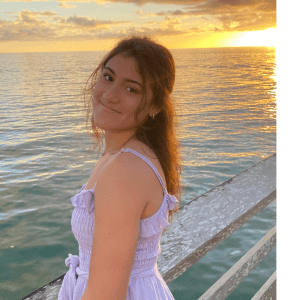
Please provide a brief summary of your research.
I took the lead on adapting a manual to be used in the quantitative analysis of behavioral regulation skills in 12-month olds. This contributes to larger research on the earliest emergence of psychopathology in infancy and early childhood.
What made you interested in pursuing interdisciplinary research more broadly?
I am interested in clinical or academic research as a career path, specifically in the field of developmental neuroscience and psychology. I was looking for hands-on experience in research so I could get a better idea of what a career in research may look like.
What made you initially interested in researching your project in particular?
I am interested in infant and early childhood development, and Dr. MacNeill’s work struck me as having very important and relevant implications for future use as our focus on early mental health intervention increases. This project allowed me to increase my knowledge of early childhood development directly while also working on the “back-end” of developing research questions and methods.
Describe your experiences with research thus far in your career.
My experience was very informative and engaging. I definitely had to shift my mentality from a student’s perspective to a direct contributor to a project, and in doing so assumed a lot of responsibility and self-discipline. I had the chance to improve upon my academic writing and also learned the ins and outs of behavioral coding, which I had never done before.
Any tips or advice you have for students interested in pursuing undergraduate research?
The hardest part is starting! I recommend doing some preliminary research into what labs are out there doing work that interests you and reaching out to get more information. Most PIs are willing and excited to talk to you about their research so that you can get a better idea of what you’re really interested in. The Office of Undergraduate Research has so many resources and people willing to chat about getting started in research, so definitely take advantage of that resource too (I took the SRW class my sophomore year and it was extremely helpful)!
Favorite breakfast food?
Breakfast Burritos!
Malena
Malena Otero
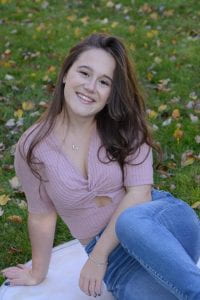
What made you initially interested in researching your project in particular?
Shortly before joining the Life-Span Development Lab I took a class on Positive Psychology. In this class I was introduced to a large field of psychology largely unexplored. While there is endless research on what can go “wrong” with the mind, there is much less out there on the effects of human flourishing. One of the researchers that we learned about was Barbara Fredrickson, whose work on positivity resonance as the foundation of love truly stood out to me. When I started working on the EIF study at LDL, I saw the potential to explore this phenomenon of positivity resonance on a demographic that had been largely ignored, friendships in young adults.
Please provide a brief summary of your research.
This summer I worked as an administrator and experimenter for our Emotion in Friendships study, where we looked at the role of emotions in dyadic interactions. Pairs of friends participated in a conversation of areas of disagreement and one of areas of agreement, and were asked to fill out a series of questionnaires related to their emotions, well-being, and social experiences. I also spent the summer training as a technician for our Caregiver-Youth Interaction Study, which looks at how emotional interactions between youths experiencing symptoms of thought disorder and their parent/caregiver. This study aims to elucidate how these interactions may influence wellbeing for both participants.
What made you interested in pursuing (interdisciplinary) research more broadly?
In high school I participated in a Psychology summer program at Columbia where one of our assignments was to design a fake study. We were able to “test” this study on our classmates, and then presented our “findings” as a final project. In conceptualizing, designing, and conducting this study and then analyzing our findings I found a love for research. The idea of being able to test different areas of interest I had within the field of Psychology quantitatively and determine existing relationships in the real world seemed fascinating. A few years later when I was applying to colleges, I saw all the research opportunities Northwestern offers and knew I absolutely had to go for it.
Describe your experiences with research thus far. Was it tricky? What skills do you think you’ve gained?
The trickiest aspect of research I have experienced so far is the long-term nature of a research project. The life-span of a research study is long, and sometimes goals that you thought would wrap up quickly can end up taking longer than anticipated. Being involved in a research study from recruitment, through data cleaning and analysis truly makes you realize that research is much more than analyzing data. In my time at the Life-Span Development Lab, I have learning to set achievable goals and manage longer timelines, keeping motivated to follow through on a longterm project.
Any tips or advice you have for students similar to you that are interested in pursuing undergraduate research?
Before getting involved in research I at a loss on how to get involved. Research at such a notorious research institution seemed larger than life, and I was so nervous to reach out. Now that I have had a chance to work in research at Northwestern, I realize just how much support there is to get involved. The Office of Undergraduate Research has endless opportunities and many people working to help you get involved in research, all you have to do is reach out!
Favorite breakfast food?
Chocolate Chips Pancakes!
What’s the most interesting thing you’ve learned/read about/listened to this week?
In my Advanced Statistics and Experimental Design we are learning about the perils of underpowered and overpowered studies. I found this super interesting considering how relevant it is to research but also how little it is emphasized.
Benjamin
Benjamin Weiss
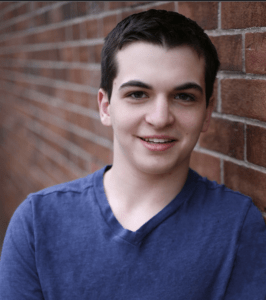
Please provide a brief summary of your research.
My research involves the exploratory synthesis of solid-state compounds. After designing a chemical reaction, we utilize X-ray diffraction techniques to identify the compound or (if unidentified) solve the structure of the new compound. Subsequent characterization and investigation on the properties of the compound can then occur. I investigate a class of compounds known as thermoelectric materials which can absorb heat and generate electricity.
What made you interested in pursuing (interdisciplinary) research more broadly?
I was interested in research because it investigates the unknown. I find that research is like any other creative process, involving a deep dive into questioning and critical thinking. It was really satisfying to draw parallels across disciplines.
Describe your experiences with research thus far. Was it tricky? What skills do you think you’ve gained?
My experience so far with research has been really exciting. There is something so fascinating about creating new chemical compounds, being some of the first people to see the composition, and physically touch the compound is really exciting. Then, thinking about possible applications can be interesting as well. It also can be frustrating at times, with reactions repeatedly not working, to material decomposing. Experimenting can be hard, but it is definitely worth it!
Any tips or advice you have for students similar to you that are interested in pursuing undergraduate research?
Email teachers! Just show interest and keep emailing people. Do not get discouraged.
Caspar
Caspar Popova
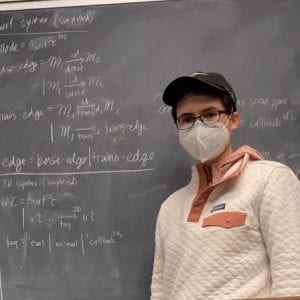
Please provide a brief summary of your research.
My work is part of a larger research project by Prof. Christos Dimoulas and PhD student Lukas Lazarek that studies how we can evaluate the usefulness of programming language features. In this specific project, we are interested in the features of type checking and blame reporting in gradually typed languages – languages such as Typed Racket that allow programmers to add type annotations to where they think is most useful, creating interactions between typed and untyped code. We evaluate usefulness based on how often a simulated programmer manages to determine the location of a type mismatch in a buggy program using the language-provided features across a suite of debugging scenarios.
Empirical research with this method so far indicates that, despite its theoretical superiority, Typed Racket is only marginally more useful than other academic and industrial gradually typed languages. However, the results are based on debugging scenarios that do not have the complex, so-called higher-order interactions between program components that theory says give an advantage to Typed Racket.
My research aims to create a new suite of debugging scenarios to properly evaluate Typed Racket. To do so, I am designing and implementing a generator for programs that takes in a specification describing the interactions between program components. By enumerating specifications with various degrees of higher-orderness, we will construct a new suite of debugging scenarios to evaluate Typed Racket.
What made you interested in pursuing (interdisciplinary) research more broadly?
I really enjoyed learning about programming languages in CS 321 and getting a taste of more advanced PL topics. I was also curious to see what research in computer science was like.
Describe your experiences with research thus far. Was it tricky? What skills do you think you’ve gained?
Research has been a really rewarding experience. The most difficult part for me was training because I was learning really in-depth about topics that I had never been exposed to before. There are also skills in research that it takes a while to develop, like reading papers (I am still working on this!). I’ve gained skills in managing my own projects/time and communicating both the successful results of research and when something is stuck. I enjoy the aspect of problem solving necessary for research.
Any tips or advice you have for students similar to you that are interested in pursuing undergraduate research?
Many labs/groups/professors have a track of undergraduate and graduate courses that will prepare you for research in their area. At least, this is what I heard from CS research workshops, and I’m sure it’s true more broadly, so don’t hesitate to ask professors how you can prepare academically to do research.
If you had unlimited time, money, resources, support, etc. what is something you would research?
How to slow down/stop/reverse climate change.
What meme lives rent free in your head?
It’s about drive it’s about power
Gregory
Gregory Svirnovskiy
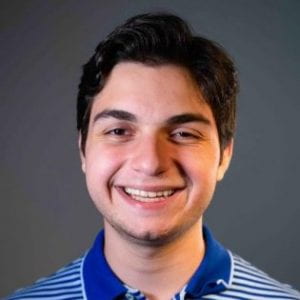
What made you initially interested in researching your project in particular?
For as long as I can remember, I’ve relaxed by watching videos of past major political events on YouTube and CSPAN. There’s so much out there. You can watch the each of the Walter Mondale and Jimmy Carter debates on YouTube, as well as coverage from Watergate and live reactions to the 1976 Presidential Elections. I found Rush Limbaugh in one of my CSPAN searches. His rise in politics was as fascinating as it was consequential. Professor Marshall and I were hooked.
Please provide a brief summary of your research.
By 1994, Republicans, and Rush Limbaugh in particular, had essentially cornered the radio media market nationally. And that resulted in real electoral consequences for Democrats, who were swept in Congress for the first time in nearly half a century in that year’s midterms. I spent the summer investigating ways Democrats looked to close that radio gap. Former politicians like Gary Hart, Mario Cuomo and L. Douglas Wilder started their own shows, each seeking to become “the Limbaugh of the Left,” but to do it with “thought talk” instead of bluster. For a myriad of reasons, it didn’t land.
What made you interested in pursuing (interdisciplinary) research more broadly?
It’s a skill I never gleaned through my classes at Northwestern, one that I think is necessary for someone that wants to go into journalism and write long-form investigative stories. I needed the training wheels.
Describe your experiences with research thus far. Was it tricky? What skills do you think you’ve gained?
There’s so much information out there. Too much, almost. I’ve learned how to refine searches, the key words to input for the most valuable links and documents.
Any tips or advice you have for students similar to you that are interested in pursuing undergraduate research?
Talk to people. When I started working with Professor Marshall this summer, I thought I’d spend it sifting through documents, reading papers and going through archives. I decided somewhere along the line to approach my research like a Journalist; by reaching out to potential sources and scheduling interviews. It’s how I ended up getting to talk to people like Gary Hart, Marjorie Margolies and Doug Wilder. Those interviews proved invaluable.
What is your most useless talent?
I know probably everything about every hockey player in the NHL. What teams they played for, where they were drafted, favorite foods, etc.
Vivica
Vivica Lewis
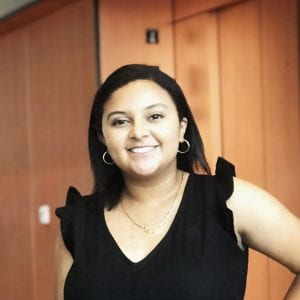
Please provide a brief summary of what you plan to research over the summer, where you plan to go, and why you chose those locations.
My research project is focused on investigating cultural shifts and youth education and engagement programs surrounding birth control methods, specifically within countries that have/had restrictive policies on the sales and usage of contraceptives. I plan on going to Argentina, Ireland, Romania, Singapore, and Japan. I chose these countries because of their past or present policies around birth control, but it was also important to me to ensure each one told a unique story. For example, Ireland’s restrictions were due to the Roman Catholic Church debates, so it provides a different narrative as the only country in the itinerary with a religious aspect. Japan legalized most forms of birth control in 1999 which is almost 40 years after Western countries, so it provides the perspective of one of the latest legalizations.
Describe your experiences with research thus far in your career.
I worked as a research assistant through the Undergraduate Research Assistant Program (URAP) my first year at Northwestern. My experience was great, and I learned a lot, but I took a break from research after that because I felt I had a lot to figure out about myself and my professional goals before returning to it. Now, as a third-year, I have a greater idea of my career goals and the research process, so I felt ready to apply for this grant.
What made you initially interested in researching your topic in particular?
I have been interested in reproductive health since my own high school health class experience. Coming from an urban community, sexual health was thought of and taught differently, and I saw so many areas for improvement at 17 years old. Once I came to Northwestern, I started taking classes related to reproductive and maternal health, and I really found my passion. I also started working with outside organizations, like Illinois Contraceptive Access Now (ICAN!) and Peer Health Exchange (PHE), which developed my technical skills and helped me start to think about what kind of career I could build in this field. Once I considered what to research, it felt natural to choose a project that allowed me to study sexual health education programs on a global scale considering my classes, work experience, and just passion!
Any tips or advice you have for students interested in pursuing undergraduate research?
My biggest piece of advice is GO FOR IT! It sounds simple, but I felt very hesitant early on to apply for such a large grant. I am extremely grateful to my family and friends that supported me from day one when I mentioned this is what I wanted to do. The field of research has been and continues to be exclusive in many ways, but I would encourage students from various backgrounds with unique perspectives to start getting into it. The Office of Undergraduate Research and faculty are here to support you every step of the way. I recall many late-night re-writes of portions of my proposal, texting friends that I was not sure I could do this, and even doubting myself, but I can say I am so glad I did not give up. So, if you are even thinking about getting into research, I hope you know that you are not alone, and you are beyond capable to do this, so start writing.
Do you collect anything?
I have always loved reading, so I keep my top almost 50 books in my room now, but I have way more back home. I read almost exclusively young adult fiction when it comes to reading for fun. I also have met many authors through book conventions around the country, so I have some signed copies that are precious to me!
What is your favorite dessert?
I love chocolate! Chocolate ice cream has been my favorite since I was a kid, and I will always choose a slice of chocolate cake!
What is your most unusual talent?
I am not sure if I would call it a talent yet, but my roommate and I recently purchased an air hockey table for our place. We play quite often, and I am not sure what I am preparing for, but I realized I am pretty good at air hockey!
Samson
Samson Mbogo
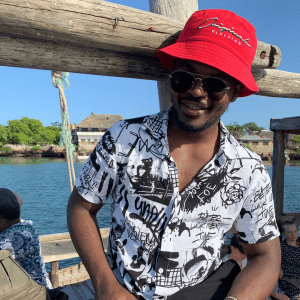
What language did you study and why?
Spanish. Since I was a kid, I have loved football (soccer), and I remember the many fun times that my father would take me to the stadium to watch the Kenyan national team play. My love for this sport has only grown over the years; I play football for my university, play FIFA video games, and currently, I am focusing my journalism career on researching, studying, and reporting on football. The love for soccer and its integration into culture in Spain excites me so much. I am focused on learning these aspects of the sport and translating them in my home country, hoping that the sport will develop to the levels it has peaked in Spain. I hope to emulate the integration of football into a culture in Spain to the Kenyan football scene. As a journalist, my biggest barrier was communication. I needed to learn Spanish to engage with the local community more deeply. Last summer, I was privileged to get that opportunity from Northwestern Undergraduate Language Grant.
What program did you attend and why did you choose it?
AIL Madrid. Initially, I was looking forward to traveling to Spain for my language study, but unfortunately, due to COVID-19 restrictions, I had to take my program online. AIL provided me with a very engaging online study program from native speakers for tutors to weekly virtual tours around Madrid. The reviews that the program had received online too were positive, and when I enrolled, I was not disappointed.
Describe your experience doing summer language study. Was it tricky? How do you think your language skills improved?
It was completely different from what I expected, in a good way, though. When I got in class, I heard the tutor speaking in Spanish, and I was waiting for them to finish and translate what they had said in English. They informed us that learning this new language meant they would not use translations (unless necessary) because that would slow our learning process. This aspect got me being very attentive in class and doing extra work outside of class to ensure I understood better what was being taught, and at the end of it, I found that technique very helpful to my overall learning of the language because my skills improved immensely from writing to reading and speaking.
Did intensive summer language study change or solidify any of your future goals? If so, how?
Learning Spanish has made it easier for me to access more documents in my research on how culture and football are intertwined in Spain. This is major step forward as a journalist focused on learning more about football and culture in Spain.
Do you have any tips or advice for students similar to you that are interested in pursing intensive language study?
Have clear goals on why you want to study the particular language, that helps you to be more driven and focused during your study. Do enough research about the program where you want to take your language, that completely defines how successful your language study will be. Be open minded, have fun, try new things and enjoy especially if you get to travel because learning a new language is meant to be fun 🙂
If you had unlimited time, money, resources, support, etc. what is something you would research?
Whether we can become immortal.
Favorite breakfast food?
Crunchy bacon, avocado, runny eggs, toast and milk.
What is your most useless talent?
Moving my ears.
